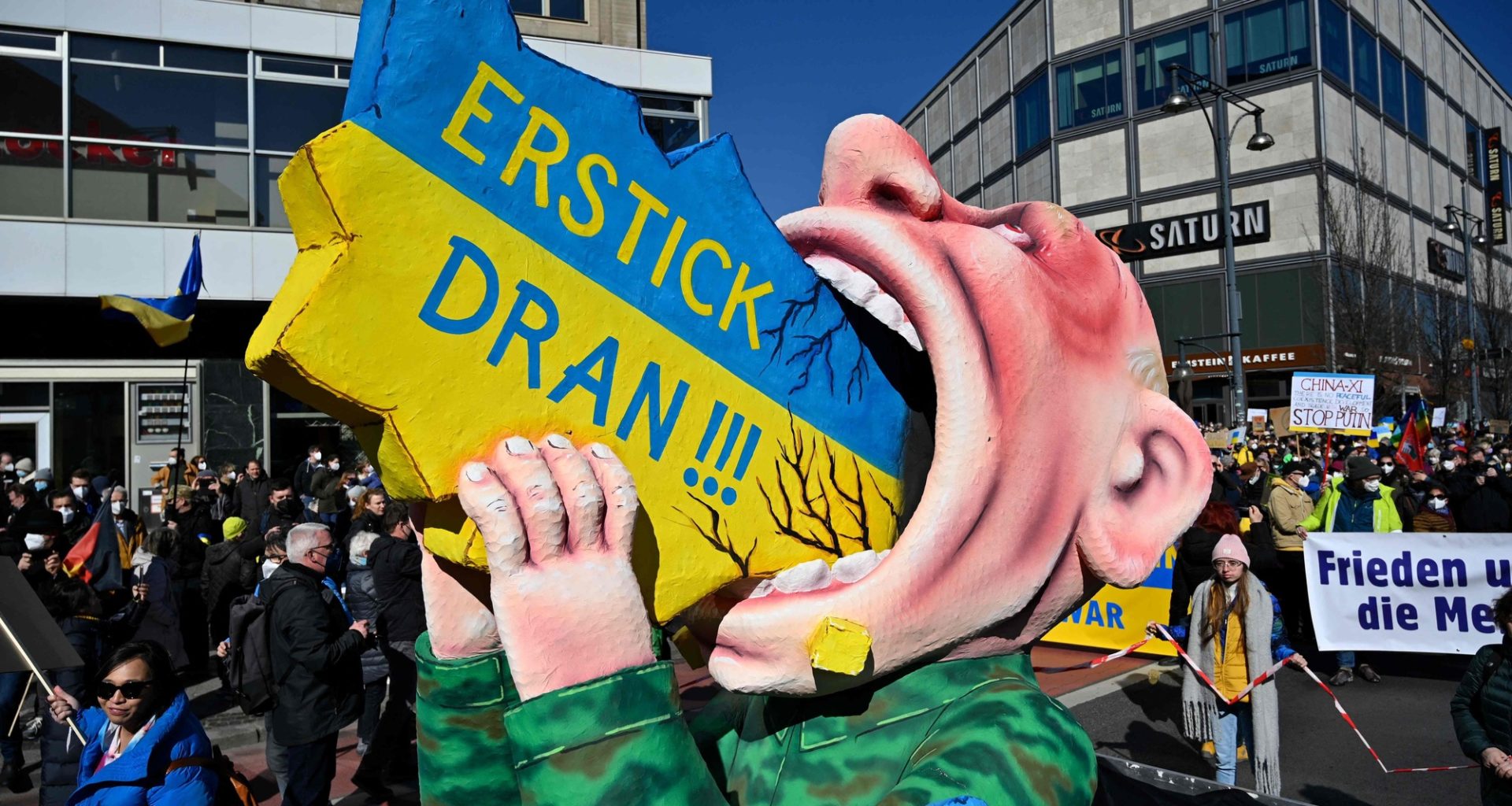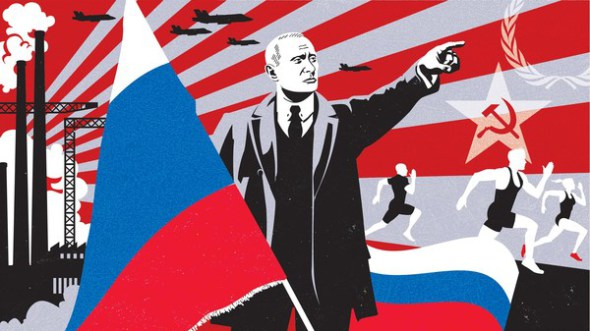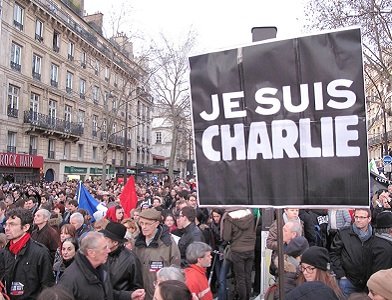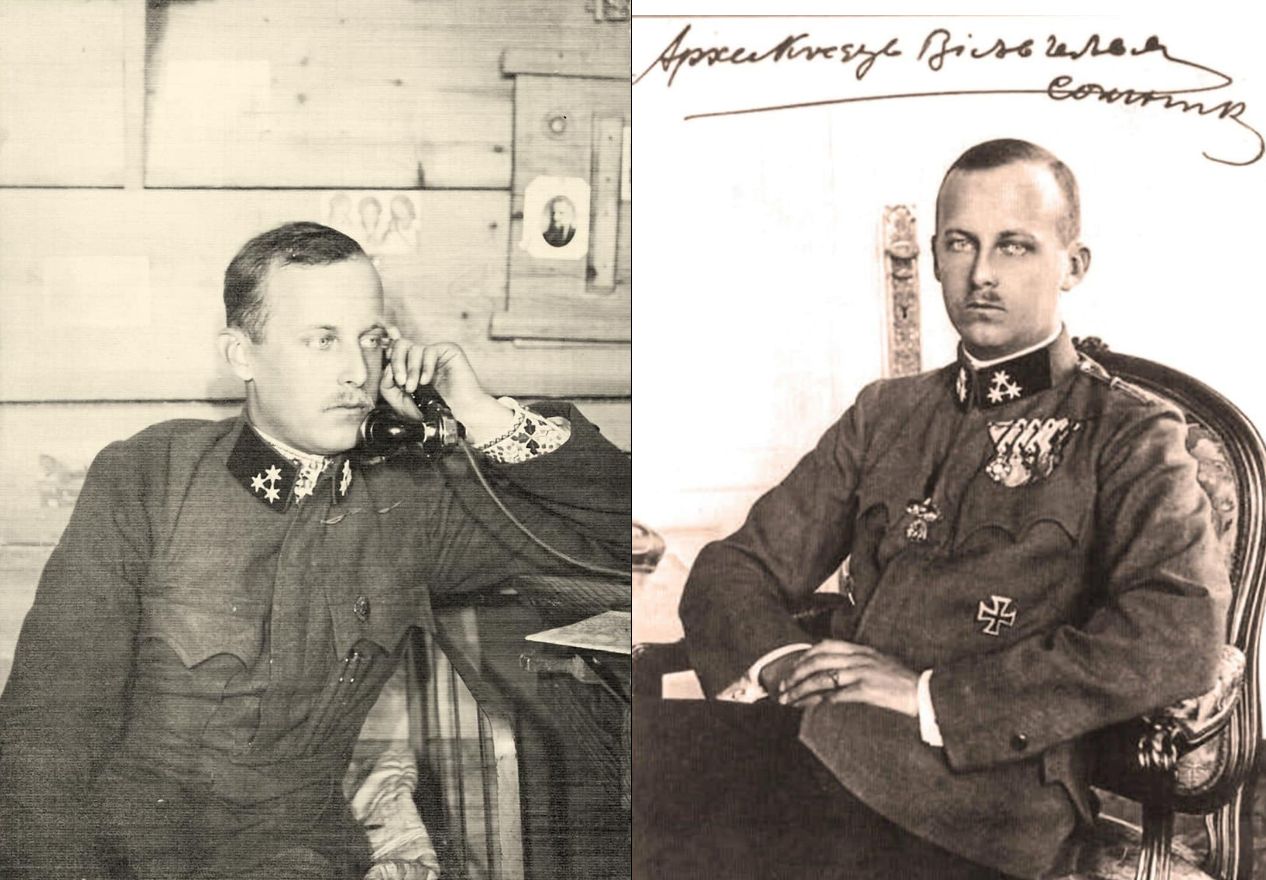“There is no freedom without blood.”
Quote from the historical film “Krutyⓘ 1918“)
War of annihilation – Putin’s solution to his Ukraine problem
The aim of Russia’s war of aggression against Ukraine was its complete subjugation to Moscow’s rule. Yes, even more: just as Hitler’s war against the Soviet Union was a war of annihilation, Putin’s war against Ukraine was intended to be a war of annihilation.
The planned blitzkrieg, however, failed because of Ukraine’s surprising resilience, the will of the Ukrainian leadership to defend the country against Russian aggression, the courageous resistance of the Ukrainian population against the Russian invaders – and the bravery of the Ukrainian soldiers.
Ukraine is defending itself against its destruction as a state, against the destruction of its national identity, against its “mankurtization,” i.e., its de-Ukrainization and total Russification, against a cultural genocide – against the enslavement and deportation of its citizens.
Ukraine has no choice between “war and peace.” For Ukraine, this war is a matter of “to be or not to be” – in the truest sense of the word, a matter of its very existence. If Russia wins this war, Ukraine will not continue to live territorially amputated like Germany after the two lost world wars: Putin will wipe Ukraine off the map.
Putin wants to finally eradicate the source of democratic contagion for his Russia, which Ukraine has been since the “Orange Revolution” in 2004, threatening his regime. Putin is striving for a “definitive solution to the Ukrainian question,” so to speak.
If Russia wins this war, Ukraine will not only have lost it; Ukraine will literally be lost. Putin will turn Ukraine into an “Archipelago Gulag,” a large penal colony.
Ukraine has no choice between “war and peace.” For Ukraine, this war is a matter of “to be or not to be” – in the truest sense of the word, a matter of its very existence.
The defence of Europe in Ukraine
Ukraine is not only defending itself: By defending itself against Russian aggression, Ukraine is defending Europe; by defending their freedom, Ukrainians are defending the freedom of Europeans.
“Germany is being defended in the Hindu Kush,” declared the then German Defence Minister Peter Struck (1 March 2004) – justifying Germany’s participation in the war against the Taliban in Afghanistan. That was a controversial statement, but it is undeniable that Germany is being defended in Ukraine today.
And because Europe does not want to send its soldiers to the front in Ukraine to defend itself but would rather have Ukrainian soldiers die for Europe, supplying superior weapons to the Ukrainian defenders of Europe as quickly as possible is the least Europe can and must do.
“Yalta II” – destruction of the European order
But for Putin, it is not only about Ukraine; the conquest of the whole of Ukraine is his ostensible goal. The revisionist Putin seeks the restoration of Russian rule over all of Eastern and East-Central Europe – as it existed after World War II. Putin is pursuing the partition of Europe as decided by the Allied “Big Three” towards the end of World War II at their summit meeting in Yalta in February 1945.
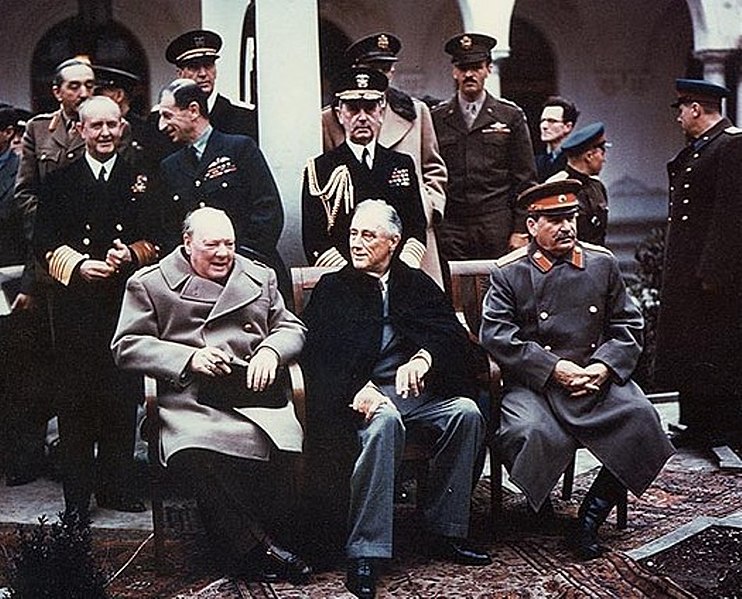
In February 2020, Putin invited the other four permanent members of the UN Security Council (USA, Great Britain, France, and China) to a summit meeting of the “Big Five” – a “Yalta II” – with the aim of once again dividing Europe into “spheres of influence.”
Putin’s war against Ukraine is also a war against the European Union, in which today, the states of the former “Eastern Bloc” are united with “Western Europe.” Putin wants to destroy the European order that was established after the end of the Cold War.
Putin attempts to ruin the European Union. Now that Europe has become independent of Russian gas – and thus economically independent of Russia – Putin is doing everything he can to politically destabilize the European Union. Through disinformation and propagation of factual ambivalence, through political and financial support of so-called “Euro-sceptic” forces on the right and left fringes of the political spectrum of the EU-member states, and generally with the help of public figures in the West, who out of political naivety demand that Ukraine be willing to negotiate with the aggressor, Putin is trying to divide Western societies.
Putin is aiming at the disintegration of the European Union, by which he wants to re-stage the disintegration of his Soviet Union three decades ago, which was, for him, the “greatest catastrophe of the 20th century”.
War against the “collective West”
But Putin’s overarching goal goes beyond Europe.
- His war against Ukraine is a proxy war against the “Collective West,” that is, against the United States of America and its European and East Asian “satellite states.”
- Putin aspires to dismantle the global hegemony of the USA, that is, “containing” Russia, i.e., hinders Russia’s neo-imperialist expansion. That is why Putin’s Russia has allied itself with the People’s Republic of China. Putin shares the same geopolitical goal with Chinese President Xi Jinping: weakening the USA.
- Putin wants to counteract the “containment policy” that the United States pursued towards the Soviet Union during the Cold War – and its remake towards the Russian Federation afterward – with a “counter-containment” policy towards the USA, so to speak.
The time factor – Western hesitancy in assisting Ukraine with arms
As a result of the initial hesitation of the West, in particular of German Chancellor Olaf Scholz in the delivery of “heavy weapons,” yes, as a result of the downright dismissive attitude of the Chancellor’s Office towards Ukraine’s calls for help, Russia was able to continue the war as a trench war in the south-east of the country after the withdrawal of the Russian army from the north-east of Ukraine.
The nonsensical incrementalism in the supply of modern weapons enabled Russia to fortify and mine the new 1,200-kilometer-long front line against the announced Ukrainian counter-offensive.
Putin is now continuing his war against Ukraine as a war of attrition with the calculation that he has the longer breath due to Russia’s disproportionately greater resources of men and material – but also vis-à-vis Ukraine’s Western supporters, whose stocks of weapons are not infinite (certainly not those of the scrapped German Bundeswehr).
Because the West – fearing an escalation of the war and direct involvement in it – was too late in equipping Ukraine with superior weapons, the Ukrainian army had to postpone the counter-offensive planned for spring 2023 until summer. Thus, it is the West’s fault that Ukraine has so far been able to recapture only a small part of its Russian-occupied territory – and has had to pay for this small gain in territory with a high blood toll.
In an interview with Erin Burnett on CNN, Ukrainian President Zelenskyy himself explained the reason for the delayed start and slow progress of the Ukrainian counter-offensive with the hesitant delivery of the promised weapons; Russia had thus gained time to tightly mine the battlefield through which the Ukrainian soldiers have to fight their way.
Meanwhile, speaking with the Washington Post, commander-in-chief of the Ukrainian army Valeriy Zaluzhnyi was outraged by Western criticism of the slow progress of the Ukrainian offensive, which is due to the slow delivery of Western weapons. The promised modern “F-16” fighter jets, which would provide the necessary air support for the forward movement of ground troops on the battlefield, have still not been delivered by 30 June, he said.
Scholz: “Our history will go on together”
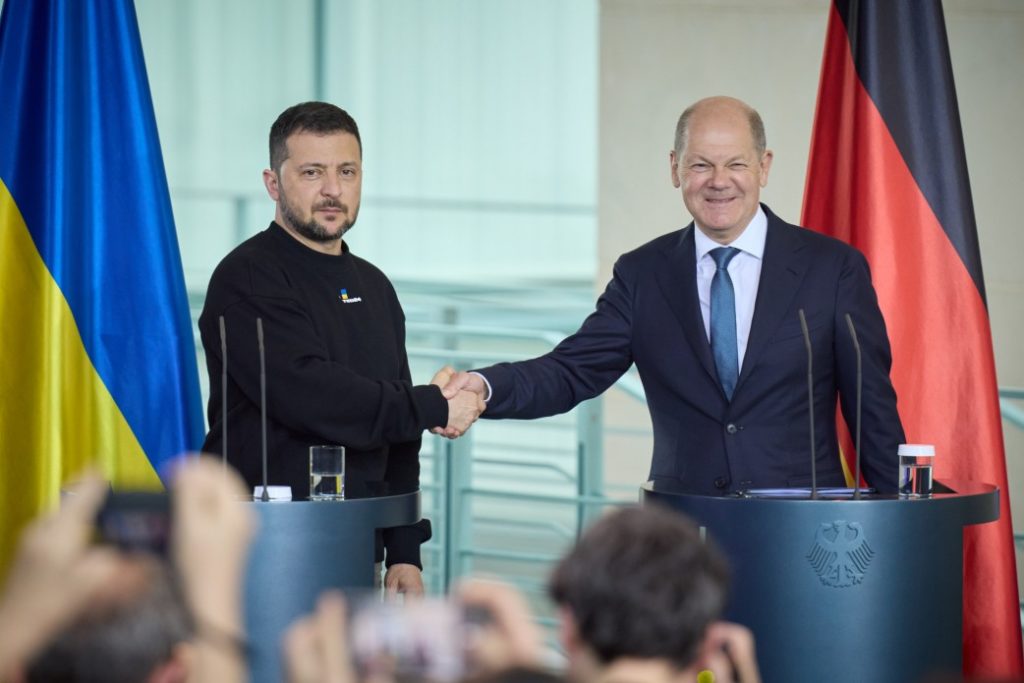
Admittedly, more decisive action is now being taken. Of momentous significance could be the words spoken by German Chancellor Olaf Scholz in his laudation at the award of the Charlemagne Prize to Ukrainian President Zelenskyy and the Ukrainian people in Aachen on 14 May 2023: “We stand together! We belong together! And: our history will continue together.”
Scholz thanked the Ukrainian President and the Ukrainian people for defending common European values. He recalled how Volodymyr Zelenskyy, in his first video message on the morning of the Russian attack, had reaffirmed the Ukrainian will to resist in terse words – and quoted in Ukrainian: “The President is here. We are all here” – and stated: “Probably rarely in history have such terse words had such great impact.”
Unfortunately, the words of Olaf Scholz did not have the hoped-for consequences – at least not with the necessary speed. As with the delivery of the battle tank “Leopard II,” the German chancellor needs far too much time for a decision regarding the medium-range air-to-surface Taurus cruise missile – thus confirming his nickname “the Procrastinator.”
His Foreign Minister Annalena Baerbock demonstrates more decisiveness. On 21 August, she spoke out in favor of a quick decision: “That every day counts is something I believe we have had to experience not only impressively but in a brutal way over the last year and a half.”
Baerbock welcomed the decision of the Netherlands and Denmark to supply Ukraine with a total of 61 F-16 fighter jets. “It was a good day for Ukraine and thus also a good day for Europe…” she commented.
Similarly, German Finance Minister Christian Lindner, leader of the Liberal Party, also spoke out in favor of the delivery of the Taurus during his visit to Kyiv.
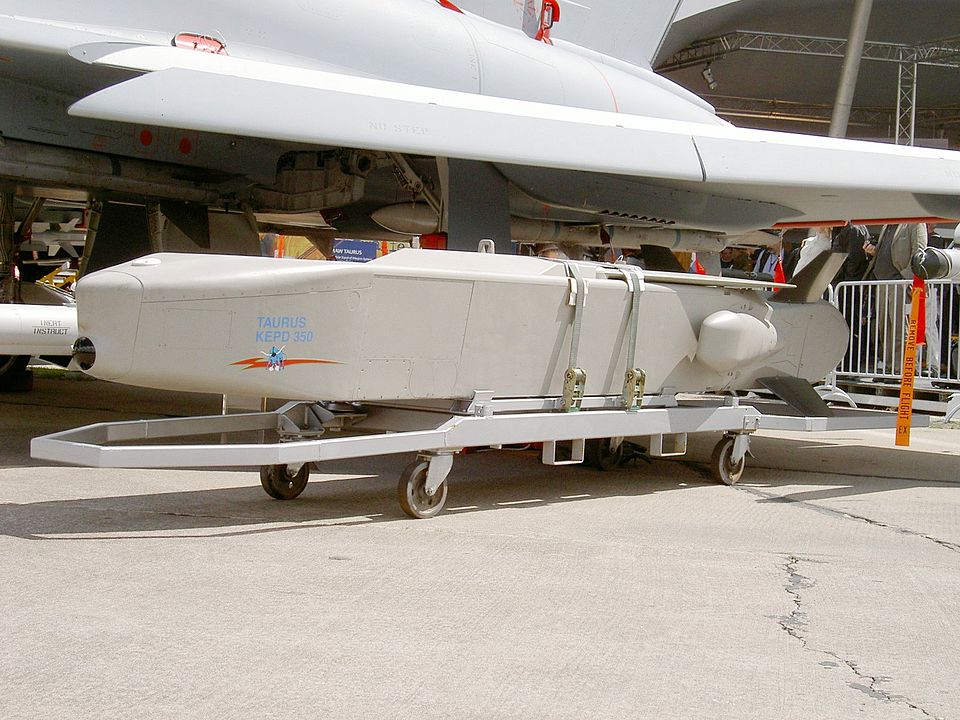
Meanwhile, American President Joe Biden allowed NATO member countries to transfer the American “F-16” fighter aircraft to Ukraine also only after long hesitation.
Time plays a crucial role in this war. The delay in arms deliveries played into Putin’s hands. President Zelenskyy rightly used dramatic language in pointing out that Ukrainian soldiers are paying for the wait with their lives. And time makes Putin’s threats to escalate the war work in Western societies – as the various calls to stop arms deliveries to Ukraine show.
The Western doubters about the delivery of long-range weapons to Ukraine are plagued by the fear that Ukraine could use them to attack targets on Russian territory. But so far, Ukraine has kept to the agreements and has not attacked Russian territory with German weapons.
It is not surprising when Ukrainian conspiracy narrators speak of an intended “symmetry” in Western arms deliveries, i.e., that the West is deliberately arming Ukraine only to the extent that it does not lose and Russia does not win – and thus coercing Ukraine to negotiate a “peace against land” deal with Putin.
“Peace for land” – Ukrainian citizens as “bargaining chips”
There can be no negotiations with Putin. What should Ukraine negotiate with the aggressor, what compromise should it make? Perhaps how much of the spoils of war he gets to keep when he withdraws his troops?
“Peace for land” is not a peace solution, should this formula one day be imposed on Ukraine by a war-weary West. Putin does not want part of Ukraine; he wants all of Ukraine. Putin will not stop warring on Ukraine until he has brought the whole country under his control. “As long as Putin is in power, the war will continue,” Russian sociologist Greg Yudin said in an interview.
For Ukraine, ceding part of its land to Russia, as Western defeatists demand, means not only ceding territory, square kilometers; for Ukraine, ceding part of its land means handing over part of the Ukrainian population to the murderous Russian occupation regime.
What the Ukrainian population has to expect from Russian occupation became apparent immediately after the invasion – in Bucha and in other occupied cities: Torture and murder, rape, abduction – atrocities the mysterious “Russian soul” chokes out from its deep abysses.
The number of refugees proves how real Ukrainians think this prospect is: as of August 2023, according to estimates by the UN Refugee Agency (UNHCR, United Nations High Commissioner for Refugees), the number of war refugees from Ukraine registered in the world was 6.2 million; as of 1 September, the number of internally displaced persons (IDPs) was 2.6 million. Thus, one year after the Russian invasion, the number of Ukrainian war refugees is 8.8 million – over one-fifth of the Ukrainian population!
Fortunately, as yet, the flight of so many Ukrainians to the West, generated by the Russian war of aggression, has not led to refugee fatigue in the host countries; Putin’s “civilian” weapon in his hybrid aggression against the European Union has proved ineffective.
Threat of a change of power in the USA
It is safe to assume that the Kremlin is counting on a change of power in the US presidential elections on 5 November 2024 – and will therefore by all means hold on to its current defensive positions in south-eastern Ukraine. A possible return of Donald Trump or a like-minded candidate to the White House is a looming threat to Ukraine that is greater than the Russian military, since a “Trumpist” would immediately – as announced – cease American support for Ukraine altogether.
And that in turn would – in all likelihood – have a crippling effect on European willingness to continue military support for Ukraine. (Currently it appears that – unspoken – further military support for Ukraine on the part of the West is made dependent on the success of the Ukrainian counter-offensive). A fragmentation of the European Union on this issue would most likely result in a “creeping victory” (Georg Häsler) for Russia.
Nuclear escalation – fear as a weapon
Putin’s threat of nuclear escalation serves, on the one hand, to intimidate Ukraine – which he has not succeeded in doing so far; on the other hand, Putin’s nuclear threat serves to blackmail the West, which he has – so far – also not succeeded in doing, even if it plays a role in the public debate, especially in Germany.
The open threat of using nuclear weapons as well as the covert threat of releasing radioactivity from the occupied Zaporizhzhia nuclear power plant serves to agitate the Western public: the nuclear threat is intended to generate public pressure on governments to cease military support for Ukraine – and thus to hand Ukraine over to Russia.
Putin relies on fear as a weapon, on the loss of trust in the strategic concept of “Mutual Assured Destruction” (“MAD”), the “balance of terror,” which proved to be peacekeeping during the Cold War. In the Cold War, nuclear weapons were not meant to be used for warfare, but for mutual nuclear deterrence – i.e. for the prevention of war. Today, Putin’s nuclear threat causes a certain “self-deterrence” in German society, according to Klaus Wittmann, German historian and retired Brigadier General of the German Armed Forces.
Of course, Putin’s nuclear threats must be taken seriously – above all because paranoia reigns in the Moscow Kremlin. In Russia, nuclear weapons are in the hands of an irrational war criminal; and because, as Matthias Herdegen, Director of the Institute for International Law at the University of Bonn explained, the current Russian regime is “leaving the paths of habitual rationality on which we could rely even during the Cold War with the old men in the Kremlin.”
Therefore, the West must be prepared for possible – suicidal – Russian attacks, especially with tactical nuclear weapons; it must design a credible military response to Putin’s threats – and not just hope that the instinct for self-preservation in Putin’s “entourage” will work. Maybe the classified final document of the NATO summit in Vilnius on July 11 and 12 contains such plans.
The lesson of “Munich”
A clear conclusion can be drawn from the Munich Agreement of September 1938: Appeasement of a tyrant willing to wage war – such as the cession of territories (e. g. Sudetenland) – does not keep him from war. And Putin is determined to win his war in Ukraine, no matter what the cost – including to Russia. Because not only his political fate depends on the outcome of this war, but probably also his life.
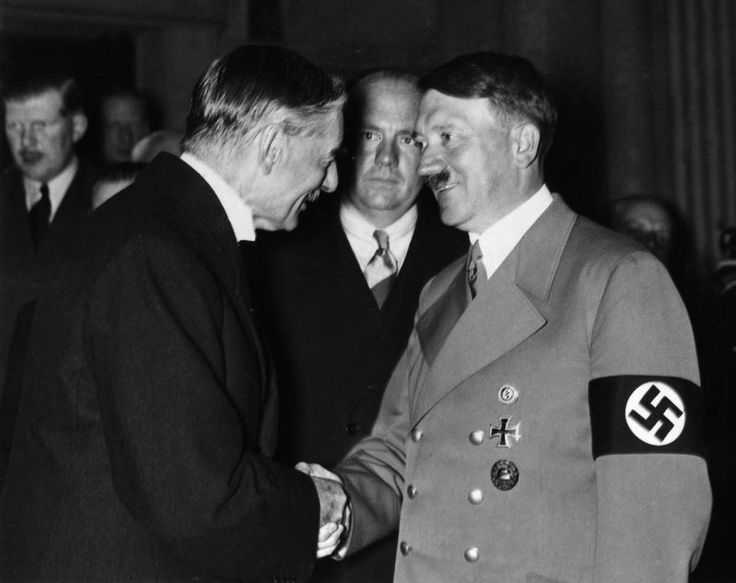
If Putin wins his war of aggression against Ukraine, then war will return to what it was in the past: “the continuation of politics by other means” (Von Clausewitz).
Putin will pursue his aims in Moldova and in Georgia with war. Whether he will attack the Baltic states – three NATO countries – depends on the credibility of NATO’s deterrence. For sure, he will continue to wage his psychological war against the West, and intensify his cyber operations aimed at dividing Western societies. And Putin will be able to count on the support of naive Western defeatists.
Therefore, Putin’s army must be defeated in Ukraine – with the combined forces of Ukraine and the West; whereby the West must provide its Ukrainian defenders with the weapons that the fighting Ukrainian army needs to win this war.
Germany’s useful idiots
Anyone who now demands that arms deliveries to Ukraine be stopped, anyone who now demands a ceasefire from Ukraine and thus in effect asks Ukraine to surrender, anyone who now asks Ukraine to make a “compromise,” which means as much as giving up 20% of its territory and thereby handing over one fifth of the Ukrainian population to Russia – anyone who demands all this is not only politically naive, but he makes himself Putin’s “useful idiot.”
He is – regardless of what merits he may have earned in peacetime in politics, philosophy, literature or journalism – a security risk for Europe. In his indifference to the fate of the Ukrainian population under Russian occupation, he is, moreover, in reality immoral, regardless of his moralistic posturing.
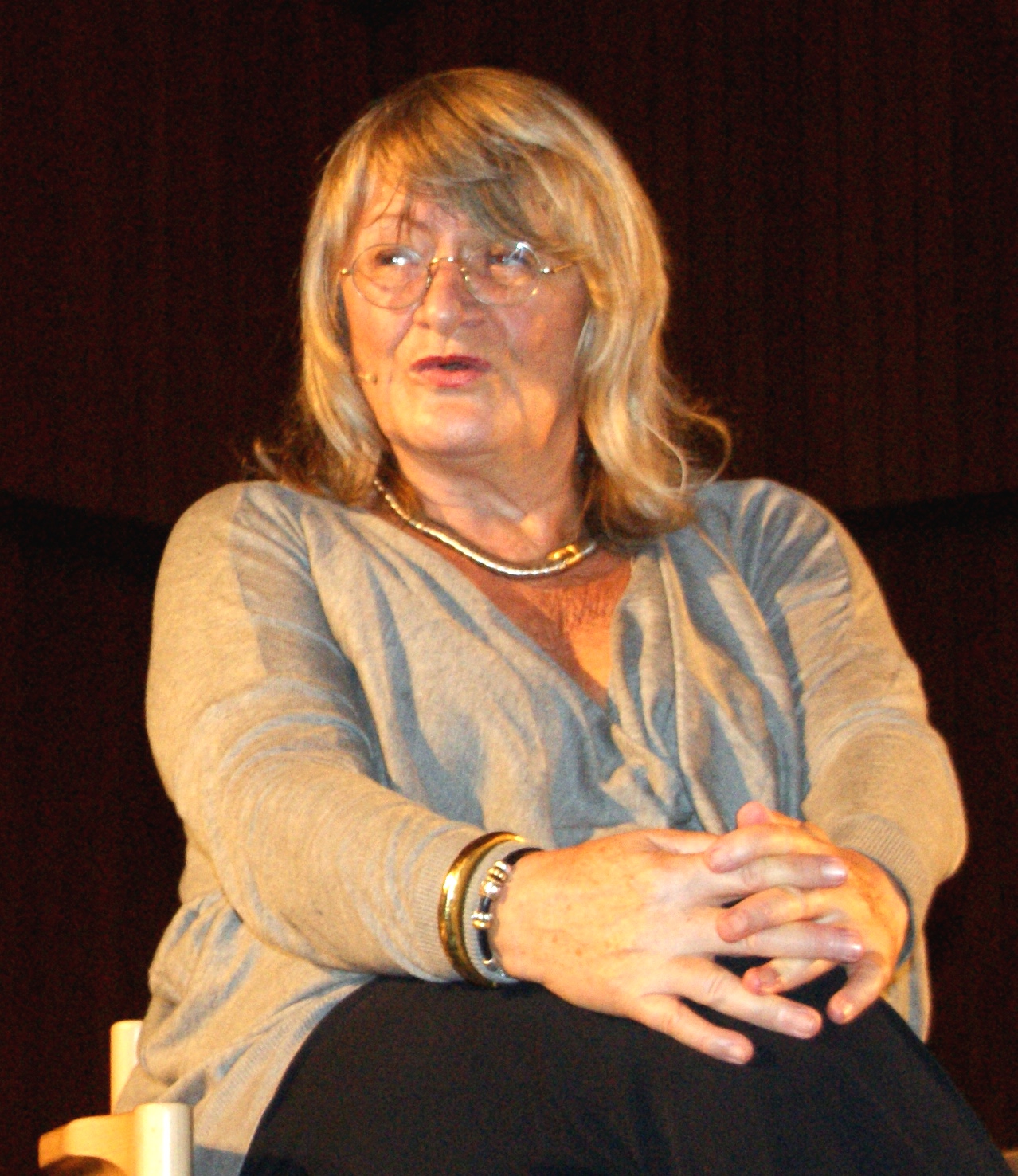
The series of defeatist appeals began in Germany with the public letter from the editor of the women’s magazine “Emma” to Chancellor Olaf Scholz on 29 April 2022. In this letter, the self-confessed “Putin understanding” Alice Schwarzer implicitly holds Ukraine jointly responsible for the war: it is a “mistake,” the letter literally says, “that the responsibility for the danger of an escalation to nuclear conflict concerns only the original aggressor; it also concerns those who provide him with a motive for his criminal actions.”
With this perfidious sentence, the aged feminist Schwarzer reiterates the bar room stereotype according to which a woman herself is to blame for her rape because she wore a skirt that was too short.
The 28 signatories of the open letter demand “compromises on both sides”: part of Ukrainian territory should be “ceded.” The consequences for the inhabitants of Russian-occupied territories are well known: war crimes and crimes against humanity of all categories. These consequences of “ceding territory” are ignored by the signatories, who thus not only prove themselves to be “useful idiots” politically, but also disqualify themselves morally.
“Resistance has limits in political ethics,” the signatories of Ms Schwarzer’s open letter argue – and refer to the “level of human suffering among the Ukrainian civilian population.” “Even justified resistance against an aggressor” would at some point be “unbearably disproportionate,” they write.
But to “prevent hundreds of thousands more deaths” – what is needed is not negotiations with the aggressor; what is needed is the quickest possible delivery of superior weapons to the Ukrainian army. The sooner this is done, the sooner the war will be over – and the fewer soldiers will die until then.
For a compromise with the mortal enemy, the Kyiv-born Golda Meir as Israeli Foreign Minister during the Six-Day War in June 1967 coined the phrase: “We want to stay alive. Our neighbours want to see us dead. That doesn’t leave much room for compromise.”
“Between annihilation and the will to survive, no ‘compromise’ is conceivable,” warns the German historian and retired general Klaus Wittmann. …Ukraine must continue to be empowered to defend itself and to liberate stolen territories. For this, it needs the combination of armoured combat vehicles and artillery, including long-range systems against the enemy’s supply lines and command centers.
“Between annihilation and the will to survive, no ‘compromise’ is conceivable”
German historian and retired general Klaus Wittmann
“Ceasefire now!”
The open letter to Chancellor Scholz was followed by an appeal of 21 intellectuals entitled: “Ceasefire Now!” The appeal read: “The West must make every effort to influence the governments of Russia and Ukraine to suspend hostilities.” In real terms, this means influencing Ukraine, because the West cannot influence Russia or Putin. The “involvement” of Putin in a strategy of “gradual de-escalation,” as demanded by the 21 intellectuals, is of an almost frightening naivety.
In view of the murderous methods as demonstrated by the “KGBist” Putin in the second Chechen war (Grozny) and in the Syrian civil war (Aleppo and Idlib), the request of the cultural leaders is deeply immoral.
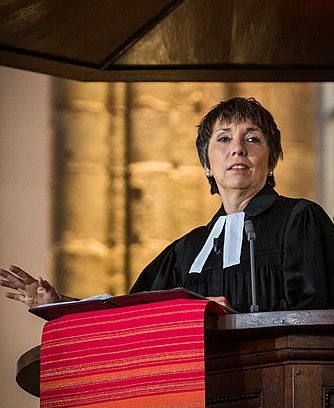
The call by the former “EKDⓘ Council President Margot Käßmann to “negotiate,” testifies to the other-worldliness of the doctor of theology.
The Christian pacifist Käßmann preaches to Ukraine to “turn the other cheek” (Mt 5:39). But Jesus, who preached peace (“But I say to you, love your enemies …, Mt 5:44) also said something else (according to the same Gospel) which the theologian Käßmann omits: “I have not come to bring peace, but the sword.” (Mt 10:34).
Margot Käßmann’s religiously motivated love of peace is surpassed by former German UN diplomat (1968 – 2000) Hans-Christof Graf von Sponeck, the unworthy son of a brave father, the resistance fighter Hans von Sponeck, who was executed by Hitler’s henchmen for his participation in the assassination attempt on Hitler on 20 July 1944.
In an interview, Von Sponeck Jr. said that an alternative (to defense) would have been for Ukraine to let the Russian invaders into their country without resistance – and then to negotiate a realpolitik solution at the negotiating table with the support of the EU and the UN” – an almost inconceivable degree of naivety from the mouth of a professional diplomat!
What most of the advocates of a Ukrainian capitulation have in common is that they have little to no idea about Eastern Europe, especially Ukraine and Russia. Sure – their appeals express most people’s longing for peace (who longs for war?), but “longing” is an escape from reality. Appeals of this kind are not harmless: they weaken Western unity in support of Ukraine and prolong the war.
Putin does not want and will not negotiate seriously, at best for appearances, to reduce Western willingness to help Ukraine with arms by raising false hopes for peace. The signatories simply do not understand who they are dealing with in the Moscow Kremlin. Putin will continue to wage war; his paranoid mental state does not allow for the withdrawal of his troops.
Therefore, the cost of the war for Russia must be increased. Ukraine must be defended – “whatever it takes” (Joe Biden), whatever it costs, and “as long as it takes” (Olaf Scholz), however long it takes.
What most of the advocates of a Ukrainian capitulation have in common is that they have little to no idea about Eastern Europe, especially Ukraine and Russia.
“Manifesto for Peace”: a manifestation of useful idiocy
The online petition “Manifesto for Peace” of February 2023 by the two allied peace-loving ladies Alice Schwarzer and Die Linke deputy Sahra Wagenknecht is a manifestation of useful idiocy.
One year after the Russian invasion of Ukraine, the signatories of the “Manifesto” think that “our solidarity” should be to force Ukraine to negotiate with Russia. The sympathy of the signatories of the “Manifesto for Peace” with the, as they write, “Ukrainian people brutally invaded by Russia,” who need “our solidarity” – is but an alibi sentence.
But what does the aggressor demand? After Putin had to realize that the whole of Ukraine could not – as assumed – be taken in a coup de main, the major war criminal in the Moscow Kremlin demanded that Ukraine recognize the “military realities on the ground,” i.e. that it accept the part of Ukrainian territory occupied by Russian troops as Russian.
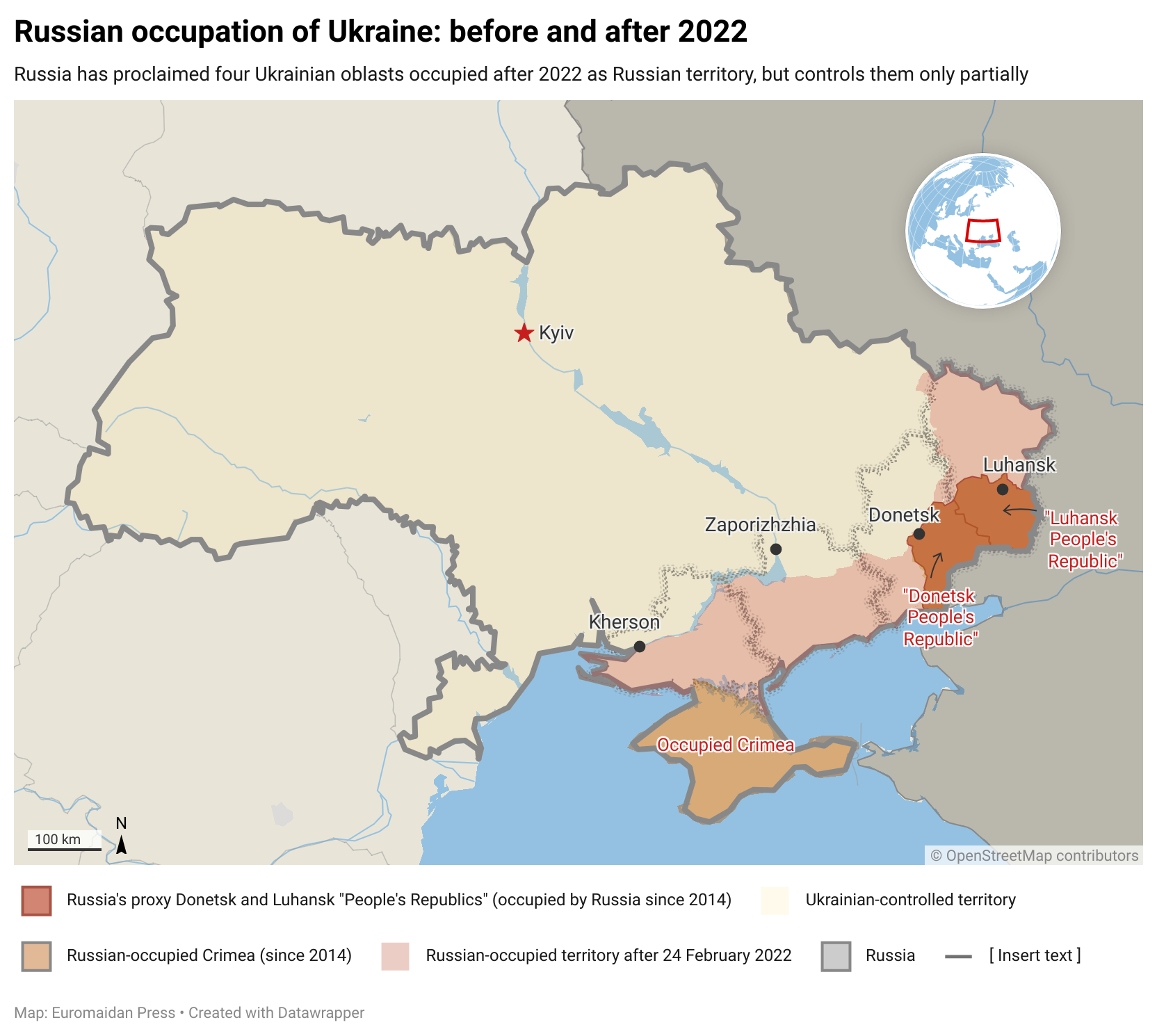
On 6 August 2023, the Russian Foreign Ministry announced that Russia was claiming “only” the four Ukrainian oblasts which, according to the Russian constitution, are parts of the Russian Federation. Annexed on 30 September 2022, they are currently only partially fully occupied by Russian troops.
President Putin’s press spokesman Peskov, when asked by a New York Times journalist if Russia intended to conquer more Ukrainian territory, replied: “No. We only want to control all the territory now enshrined in our constitution as ours.”
This may appear to some Western defeatists as a welcome, face-saving exit strategy by the Kremlin; in reality, it is a brazen lie.
“Uprising for peace”
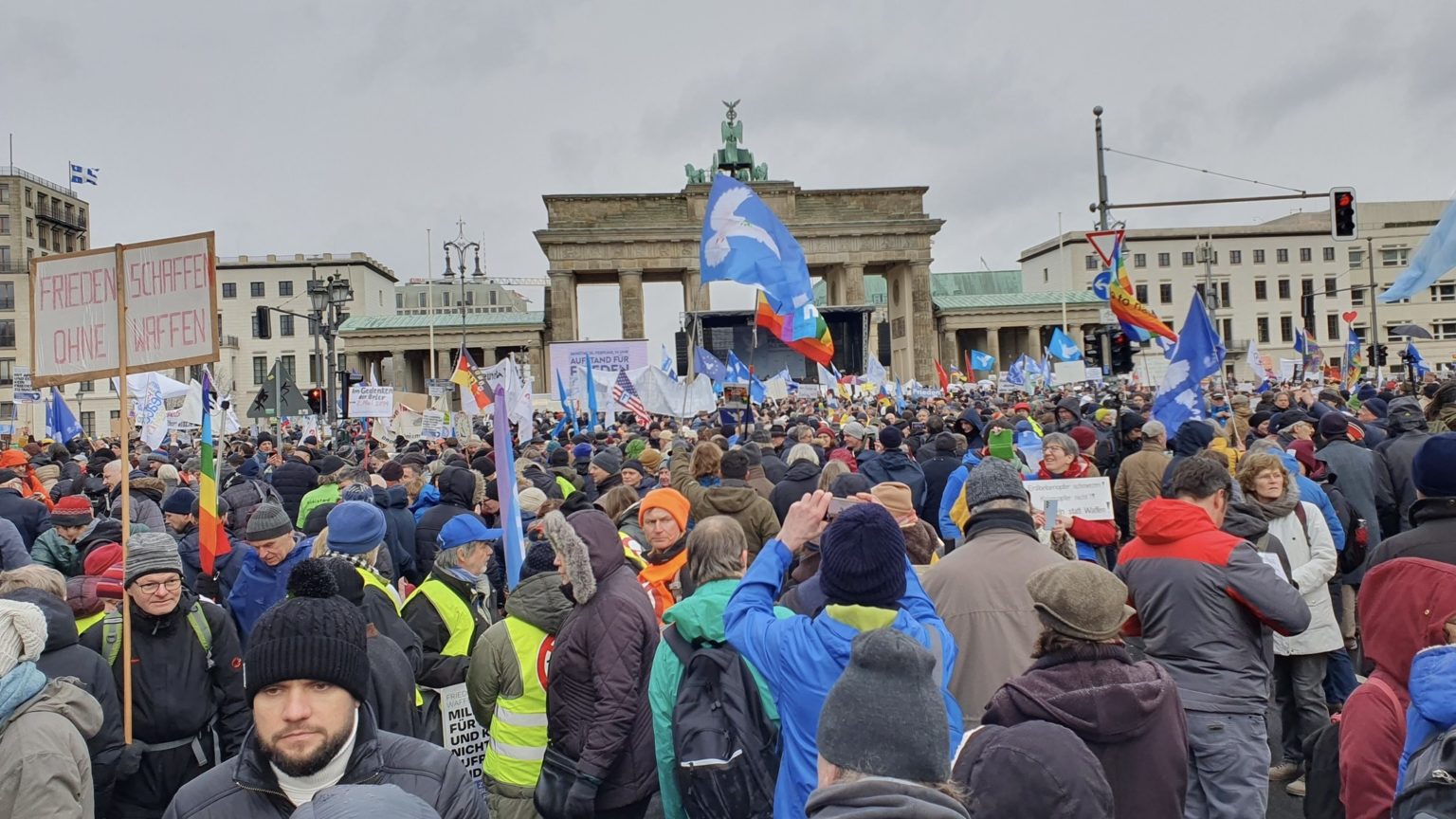
One day after the anniversary of the Russian invasion of Ukraine, on 25 February 2023, a large crowd in Berlin followed the call of Alice Schwarzer and Sahra Wagenknecht for an “uprising for peace.” Ukrainian flags – as a sign of solidarity with the victim of the Russian invasion – were not to be seen; instead, many Russian flags – as a sign of mental complicity in the war crimes of the aggressor Putin.
Christian Lindner (FDP) spoke of a “trivialization of Russian aggression”; the protest action must be “clearly countered,” he commented on Twitter. “Whoever does not stand by Ukraine is on the wrong side of history.”
In view of the war unleashed by Russia in Europe, pacifism is naive defeatism and fatalism, and the refusal to supply weapons to Ukraine, which is literally fighting for its survival, is amoral self-protection.
SPD seniors – “Ostpolitik” nostalgics
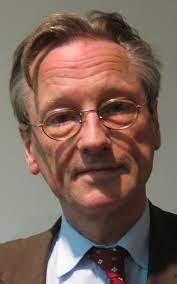
Recently, Social Democratic Party of Germany (SPD) retirees appealed to the SPD Chancellor: “Create peace! Ceasefire and common security now!” The appeal was initiated by historian Peter Brandt, a son of former SPD Chancellor Willy Brandt.
The old comrades have not caught on to the “turn of the times” proclaimed by SPD Chancellor Olaf Scholz, but, by their own admission, are stuck in Willy Brandt’s time. In an interview with the SPD party newspaper “Vorwärts,” the chairman of the SPD group “60 plus,” Lothar Binding, followed up: The “60 plus” group rejects the delivery of further “offensive weapons”; it sees the attitude of SPD Chancellor Scholz, criticized as “hesitancy,” as “strength,” namely as “thoughtfulness.”
German peace research
In a 150-page report released on 21 June 2022 entitled: “Peaceable in Times of War,” German academic peace researchers did welcome “arms aid” to Ukraine but recommend its delivery in slices – “to test the effect of certain systems in the field.” This is a manifestation of military incompetence of the “peace” researchers. The German professors look at the Moscow Kremlin from a narrow embrasure in their “ivory tower.”
“Heavy weapons – now!”
The call of the German defeatists remained not without opposition: under the title “Heavy weapons – now!” Andreas Umland (of the Stockholm Centre for Eastern European Studies) initiated a replica to the open letter “Ceasefire now!”, which was signed by renowned experts on Eastern Europe such as Karl Schlögel, Timothy Snyder, Andreas Kappeler and others.
Ralf Fücks and Marieluise Beck (of the “Zentrum Liberale Moderne”) initiated on 22 February 2023 an appeal by respected politicians of the political parties “Bündnis 90 / Die Grünen,” CDU, SPD, and FDP ⓘ under the title: “Do not accept the monstrosity!”, which was also signed by three Nobel Prize winners.
The appeal states: “A war of extermination is taking place before our eyes, the likes of which Europe has not seen since World War II.”
Germany’s true historical obligation towards Ukraine
Margot Käßmann’s defeatist reference to the outcome of other modern armed conflicts – keyword Afghanistan – is completely irrelevant. The only valid reference is the Second World War: if Adolf Hitler had not been defeated by force of arms, the Slavic population of Eastern Europe would have been enslaved – certainly the entire population of Ukraine, which suffered the longest under German occupation. Germany must not “out of its history” – as Käßmann demands – “offer itself as a diplomatic mediator” but must be a supporter, a defender of Ukraine. By supplying weapons, Germany must enable Ukraine to resist enslavement by Putin – Hitler’s “revenant” in the Moscow Kremlin.
Hitler had to suffer total military defeat on German soil; Putin must be militarily defeated today on Ukrainian soil. Regrettably, the nuclear potential in the hands of the paranoid war criminal Putin prohibits defeat on Russian soil.
Membership in NATO – instead of “security guarantees”
Only NATO can offer Ukraine protection from future Russian attacks. But the NATO member countries were unable to agree on a concrete perspective for Ukraine’s membership at their summit meeting on 11 and 12 July 2023 in Vilnius, Lithuania.
US President Biden had already made it clear before the summit that no timetable for Ukraine’s accession would be decided in Vilnius. However, he held out the prospect of security guarantees for Ukraine similar to the ones “for Israel.” And German Chancellor Scholz once again positioned himself behind President Biden’s back. Both repeatedly referred to the risks of a direct military confrontation between NATO and Russia.
The German Defence Minister Boris Pistorius (SPD) supported Olaf Scholz in an interview: NATO membership of Ukraine before peace could “quasi immediately” trigger the North Atlantic Treaty mutual defence clause (Article 5) – an irrelevant argument because the issue is about a membership perspective for Ukraine for the time after the end of the war. For a future NATO accession of Ukraine, most member countries consider an end of the war in Ukraine as a precondition – not without reason.
In the final declaration of the summit, the non-binding compromise formula was: “Ukraine’s future is in NATO.” However, an invitation to join would only be possible “when the Allies agree and the conditions are met.” Given the war in which the Ukrainian army – trained and equipped by NATO – is fighting for Ukraine’s existence, this mantric mention of “reforms in the area of democracy” as a precondition for an invitation to join is downright shameful.
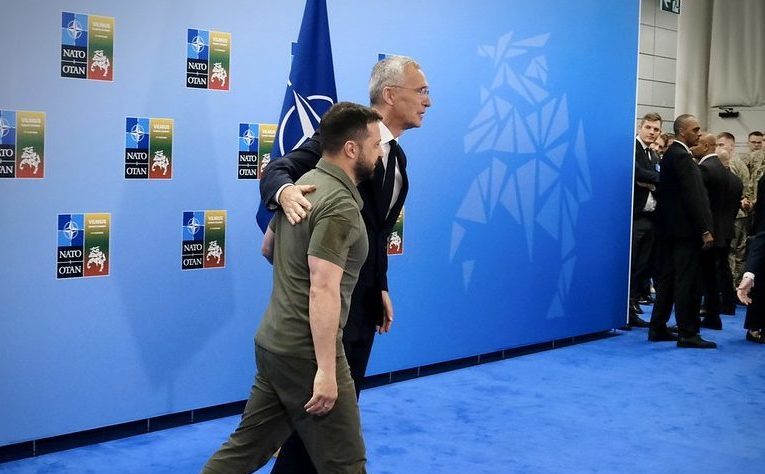
As a consolation for the disappointed Ukrainian President Zelenskyy, NATO’s political relations with his country were upgraded by the creation of a “NATO-Ukraine Council” (in replacement of the previous “NATO-Ukraine Committee”). This means that Ukraine itself can convene meetings of the body.
At the end of the NATO summit in Vilnius on 12 July 2023, the G7 countries present agreed on a framework treaty on “long-term comprehensive security guarantees” for Ukraine to help the country “defend itself now” and build a “sustainable force”; concrete bilateral agreements are to be reached later.
According to the Vilnius Framework Agreement, the G7 countries – France, Germany, Italy, the United States, Canada, Japan as well as the EU – enter into “long-term, bilateral security commitments,” which are to apply until Ukraine can become a NATO member.
The G7 stressed that they would also stand by Ukraine in the long term. In a statement published on 12 July 2023 on the fringes of the NATO summit, they held out the prospect of modern equipment for air and naval forces.
Specifically, the G7 countries pledged to the government in Kyiv to equip the Ukrainian armed forces so that they “can continue to defend their homeland and, after the Russian war of aggression ends, will be so strong that Moscow will not dare to attack again.”
American President Joe Biden said in Vilnius: “Our support will extend far into the future.” Ukraine is to be supplied with equipment in the areas of “air and sea.”
So far, the G7 countries have mainly supported Ukraine’s land forces. Now “air combat systems” are mentioned as a key military capability. However, combat aircraft (and warships) have not yet been delivered.
So far, 29 countries have joined the G7 framework agreement. The signatories “will make long-term, bilateral security commitments to Ukraine to build a Ukraine that can defend its territorial sovereignty both now and in the future,” a statement from British Prime Minister Rishi Sunak’s office said.
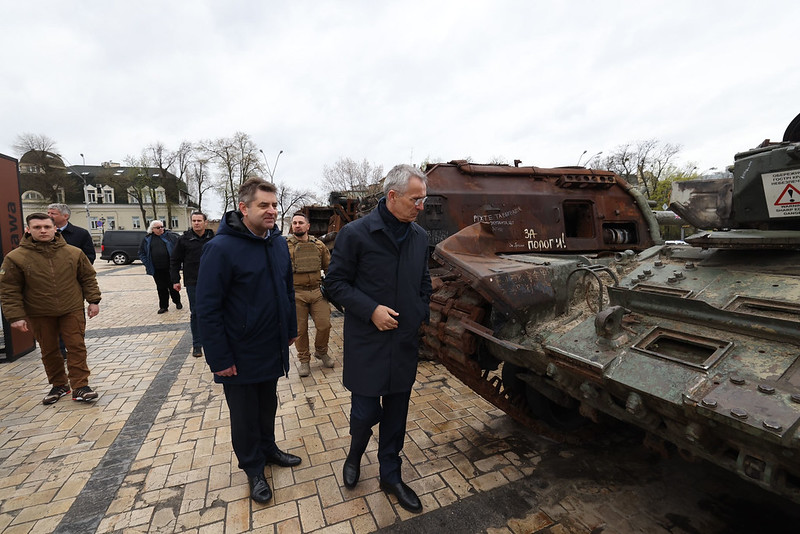
Germany agreed to provide additional Patriot systems, missiles, and tanks as part of an aid package worth EUR700 mn. Before the NATO summit concluded, the German Chancellor Olaf Scholz declared that the G7’s pledge was about a “security partnership […] on which Ukraine can now rely.” It was building on previous assistance, without which Ukraine would not have been able to defend itself.
But in fact, the “security guarantees” of the G7 are not real guarantees but merely promises, as they are not “backed” by military assistance commitments such as the assurance to also provide military assistance through their own troops in case of an attack; without these, the “guarantees” are only of limited, if not only of symbolic value.
Ukrainian President Volodymyr Zelenskyy – masking his initial disappointment – described the G7 initiative as a “bridge towards NATO membership” for his country and a deterrent against Russia.
To Russian President Putin, the NATO summit signaled – in hushed tones, that he could not hope that the West would tire of providing military support to Ukraine – for “as long as necessary.”
The Kremlin described the G7’s long-term security commitments to Ukraine as a threat to Russia’s security. The G7 were ignoring the international principle of the “indivisibility of security,” the press spokesman of the aggressor Putin, Dmitry Peskov had the effrontery to declare.
Military support for Ukraine – an imperative of European security
In view of the faltering Ukrainian counter-offensive Washington itself now seems to be sowing doubts about Ukraine’s victory and launching the inevitability of Ukrainian territorial concessions to bring the war to an end.
But the war unleashed by Putin must not end with concessions to the aggressor. The Russian army must suffer defeat in Ukraine to deal a crushing blow to the traditional delusions of grandeur in the Moscow Kremlin, which also live in large sections of the Russian population, especially among the so-called “elite.” The restoration of a Great Russian Empire in Europe by a megalomaniac successor of Russian tsars, namely the “great” Peter I and the “great” Catherine II, and the not-so-great, internally repressive and externally aggressive Nikolai I, must be prevented by all means.
Military support for Ukraine is an imperative of European security. European security today does not mean “with Russia” but “against Russia.”
Given Russia’s aggressive great power aspirations, which Putin also uses to justify his campaign of conquest in Ukraine, it seems extremely strange that the head of the Catholic Church, Pope Francis, who has already caused offense with his statements on Russia’s war against Ukraine in the past, in a video message to the participants of the X. All-Russia Day of Catholic Youth on 25 August 2023 in St Petersburg, felt he had to fuel this malignant megalomania.
According to a statement by the diocese of Moscow, Pope Francis told the young Russians: “You are the heirs of the great Russia […] the great Russia of the saints, of the rulers, the great Russia of Peter the Great, of Catherine the Great, of this empire – great, enlightened, a country with great culture and great humanity. Never give up this heritage, you are heirs of the great Mother Russia, carry on with it. And I thank you. Thank you for your way of being Russian.” His Holiness later admitted that his words were inappropriate.
The opposite is necessary: Russia must be cured of this dangerous mental disease – by a military defeat of its army in Ukraine.
Putin’s war against Ukraine does not serve Russia’s “legitimate security interests,” as claimed by its “understanders” in Germany; they are an attempt to assert anachronistic imperial claims to power by the ruler in the Moscow Kremlin.
Russia’s war against Ukraine is an attack on Europe; and Europe must be defended – by unreserved military support for Ukraine until its victory.
Military support for Ukraine is an imperative of European security. European security today does not mean “with Russia” but “against Russia.” Putin’s neo-imperialist Russia must be defeated in Ukraine!
Related:
- What’s at stake if Ukraine loses?
- Putin declares goal to reshape global order, funds major military surge
- Russia’s “ultimate” red line is as hollow as the first ten
- Munich and the Molotov-Ribbentrop pact revisited, Part 3: The way to European catastrophe
- Kremlin’s Trojan dove: how Russia uses “peace” to aid its war against Ukraine
- German Russophilia: a product of imperialism
- Nazi dreams of an enslaved Ukraine: the blind spot of Germany’s historical memory – Timothy Snyder
- Germany’s historical responsibility towards Ukraine discussed in Bundestag
- From Anschluss to Invasion: Putin follows Hitler’s playbook




